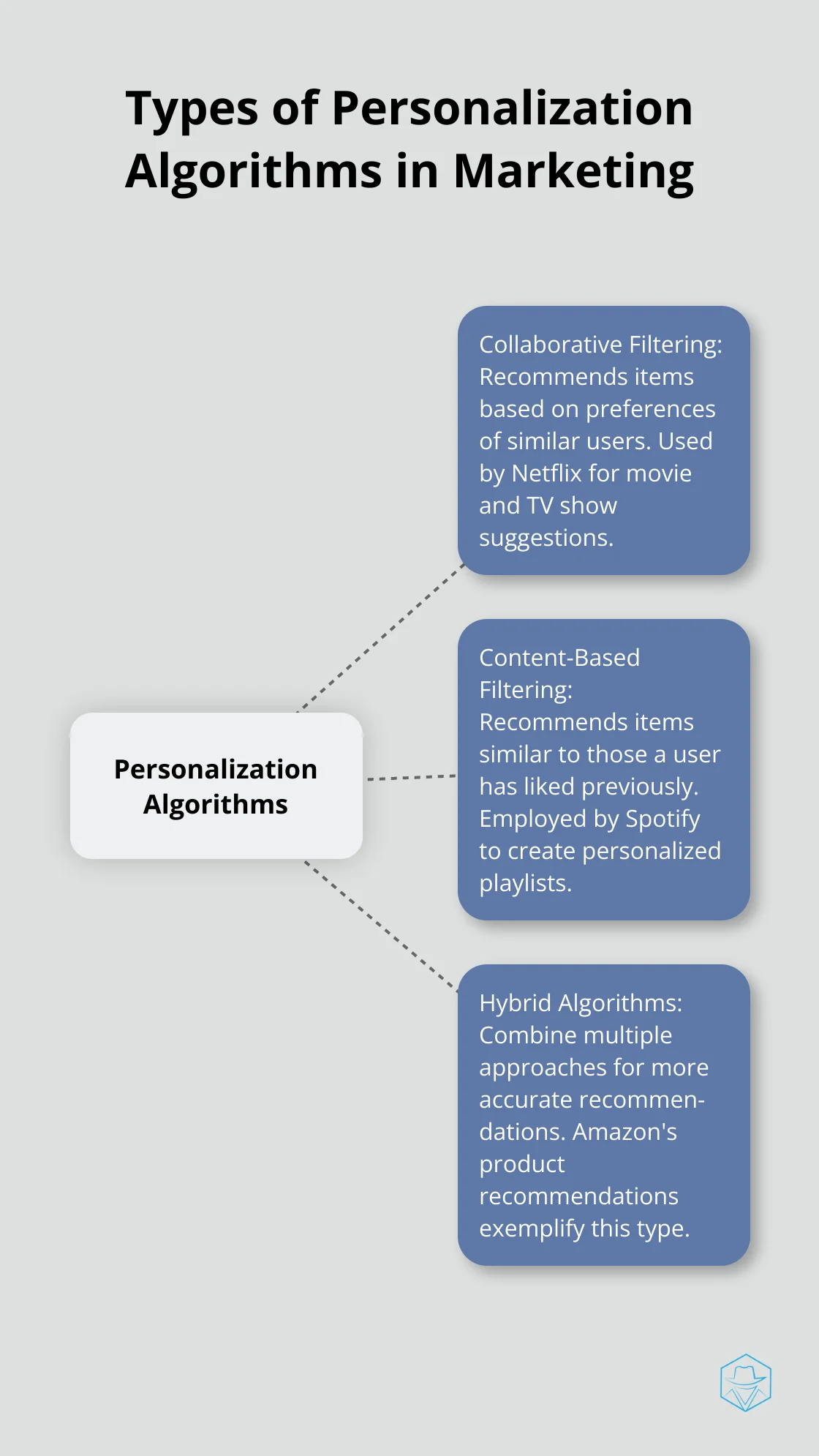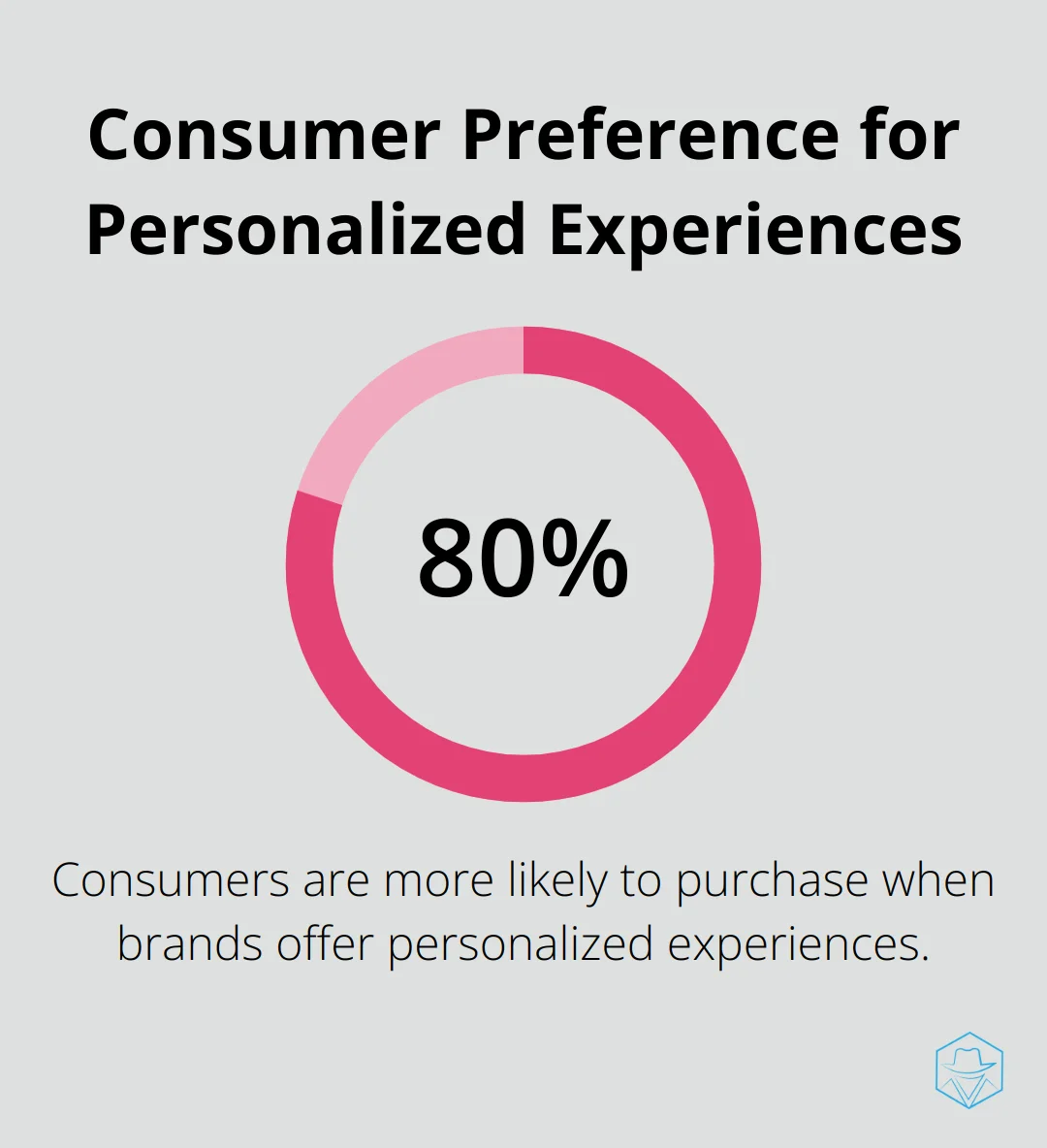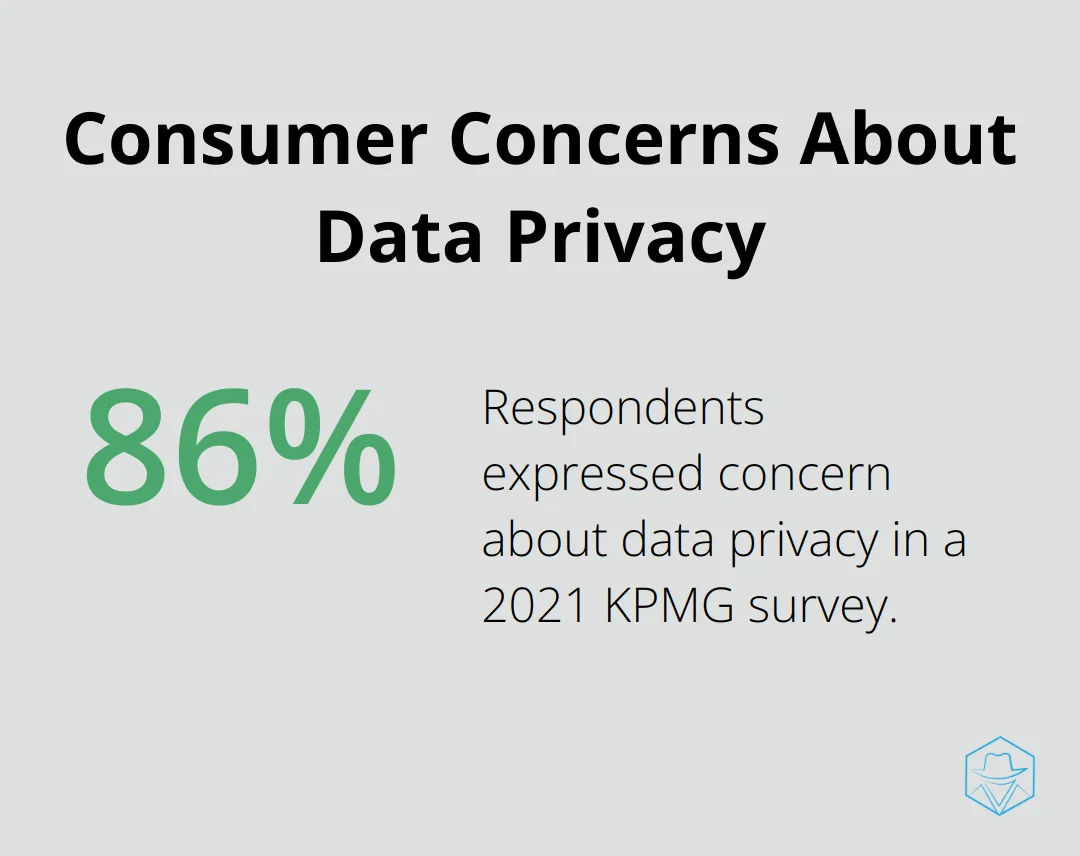How Personalization Algorithms Are Revolutionizing Marketing

At Drop Cowboy, we’ve seen firsthand how personalization algorithms are transforming the marketing landscape. These powerful tools are reshaping how businesses connect with their audience, delivering tailored experiences that resonate on a personal level.
Personalization algorithms analyze vast amounts of data to predict customer preferences and behaviors, enabling marketers to create highly targeted campaigns. In this post, we’ll explore how these algorithms work, their impact on marketing strategies, and the ethical considerations surrounding their use.
How Personalization Algorithms Transform Marketing
The Core of Personalization Algorithms
Personalization algorithms form the foundation of modern marketing strategies. These complex mathematical models analyze vast amounts of user data to predict preferences and behaviors. They typically use machine learning techniques to improve their accuracy over time, processing information such as browsing history, purchase patterns, demographic data, and real-time behavior to create comprehensive user profiles.
For instance, when a customer interacts with an e-commerce website, the algorithm tracks which products they view, the duration of their page visits, and their ultimate purchases. This data then informs future product recommendations.
Types of Algorithms in Marketing
Several types of personalization algorithms serve specific purposes in the marketing ecosystem:
- Collaborative Filtering: This algorithm recommends items based on the preferences of similar users. (Netflix uses this type to suggest movies and TV shows.)
- Content-Based Filtering: This approach recommends items similar to those a user has liked previously. (Spotify employs this method to create personalized playlists.)
- Hybrid Algorithms: These combine multiple approaches for more accurate recommendations. (Amazon’s product recommendations exemplify hybrid algorithms in action.)

Data Collection and Processing Methods
The effectiveness of personalization algorithms depends on the quality and quantity of accessible data. Companies collect data through various touchpoints:
- Website interactions (clicks, time spent, pages visited)
- Purchase history
- Email engagement
- Social media activity
- Customer support interactions
This data undergoes cleaning and normalization before feeding into the algorithm. The algorithm processes this information in real-time, constantly updating user profiles and adjusting recommendations.
Infrastructure Requirements
Implementing personalization algorithms requires robust infrastructure capable of handling large volumes of data. Companies must invest in data storage, processing power, and analytics tools to maximize these powerful marketing assets.
Personalization in Voice Technology
Some companies have integrated personalization algorithms into voice technology features. These technologies analyze speech patterns and intonation to create unique voice profiles, enhancing the personal touch in marketing communications.
As personalization algorithms continue to evolve, their role in marketing will only grow. The next section will explore the profound impact these algorithms have on shaping marketing strategies and driving business success.
How Personalization Algorithms Drive Marketing Success
Precision Targeting Through Advanced Segmentation
Personalization algorithms revolutionize marketing strategies by enabling marketers to segment their audience with remarkable precision. These algorithms analyze vast amounts of data to identify patterns and preferences that transcend traditional demographic segmentation. A study by Epsilon revealed that 80% of consumers show a higher likelihood to purchase when brands offer personalized experiences.

Companies now create micro-segments (sometimes as specific as individual customers) using this advanced segmentation. This granularity allows for highly targeted campaigns that address each customer’s unique needs and interests directly.
Elevating Customer Experience
Personalization profoundly impacts customer experience. Accenture reports that 91% of consumers prefer to shop with brands that recognize, remember, and provide relevant offers and recommendations.
Drop Cowboy’s Mimic AI™ technology exemplifies this trend by allowing businesses to clone their voice for personalized messages. This personal touch significantly increases engagement rates, as customers feel they receive tailored communication rather than a generic broadcast.
Boosting Conversion Rates and ROI
Personalization algorithms directly impact a company’s bottom line. A BCG report found that companies using advanced personalization strategies experience revenue increases of 6% to 10% – two to three times faster than those that don’t.
Drop Cowboy’s Smart Delivery™ feature demonstrates how personalization improves ROI. This feature ensures efficient global message delivery to over 80 countries, allowing businesses to reach their target audience more effectively and leading to higher conversion rates.
Real-World Success Stories
Several companies have successfully implemented personalization algorithms:
- Netflix: Their recommendation engine (powered by personalization algorithms) accounts for 80% of the content streamed on the platform. This has increased user engagement and reduced churn rates.
- Amazon: Personalized product recommendations drive 35% of their total sales, showcasing the power of tailored suggestions in e-commerce.
- Starbucks: The coffee giant saw a 300% increase in marketing campaign effectiveness and a significant boost in customer loyalty after implementing personalization in their mobile app.
These success stories underscore the transformative power of personalization algorithms in modern marketing. As these technologies continue to evolve, marketers must stay ahead of the curve to harness their full potential.
The next chapter will explore the challenges and ethical considerations that arise from the widespread use of personalization algorithms in marketing.
Navigating the Ethical Landscape of Personalization
The Privacy Paradox
Personalization algorithms offer immense potential for marketers, but they also present significant ethical challenges. Consumers crave personalized experiences, yet they worry about data privacy. A 2021 KPMG survey found that 86% of respondents expressed concern about data privacy, while 78% feared the amount of data being collected.

To address these concerns, businesses should adopt a transparent approach to data collection. They must clearly communicate what data they collect, how they use it, and give customers control over their information. Implementing robust data security measures is also essential.
User Autonomy and Filter Bubbles
Personalization algorithms can create filter bubbles, which limit users’ exposure to diverse content. This raises questions about user autonomy and the potential for manipulation. A study by the University of Copenhagen found that 61% of users were unaware of how personalization algorithms influenced their online experiences.
To mitigate this issue, companies should implement features that allow users to explore beyond their personalized recommendations. Spotify’s Discover Weekly playlist offers a good example, providing personalized suggestions while still allowing users to manually explore new genres.
Algorithmic Bias
Algorithmic bias presents a significant concern in personalization. Without careful design and monitoring, these algorithms can perpetuate or even amplify existing societal biases. A 2019 study by Harvard Business Review found that 21% of companies using AI reported bias in their systems.
Companies should regularly audit their algorithms for bias. They must ensure their data sets are diverse and representative. Forming an ethics committee to oversee the development and implementation of personalization algorithms can help address these issues.
Regulatory Compliance
The regulatory landscape for data privacy and personalization evolves rapidly. The General Data Protection Regulation (GDPR) in Europe and the California Consumer Privacy Act (CCPA) in the US have set new standards for data protection. Non-compliance can result in hefty fines (GDPR violations can cost up to €20 million or 4% of global annual turnover, whichever is higher).
Companies should stay ahead of regulatory changes by building flexibility into their personalization strategies. They need to implement robust consent management systems and regularly update their privacy policies. Appointing a dedicated data protection officer can ensure ongoing compliance.
Balancing Innovation and Ethics
As businesses harness the power of personalization algorithms, they must balance innovation with ethical considerations. Prioritizing transparency, user autonomy, fairness, and compliance will help companies build trust with their customers while reaping the benefits of personalized marketing.
Final Thoughts
Personalization algorithms have transformed marketing, enabling businesses to connect with their audience on a deeper level. These tools offer precise targeting, enhanced customer experiences, and improved conversion rates. We expect future advancements in AI and machine learning to lead to even more sophisticated applications, potentially shifting towards real-time hyper-personalization for individual customers.
Marketers must address challenges such as privacy concerns, algorithmic bias, and regulatory compliance when implementing personalization strategies. A balanced approach respects user autonomy while delivering value, requiring clear strategies, robust data management systems, and regular testing and optimization. Transparency in data practices and customer control over information remain paramount in building trust and maintaining ethical standards.
At Drop Cowboy, we’ve witnessed the transformative power of personalization in marketing campaigns. Our platform’s features, including Mimic AI™ for voice cloning, exemplify how personalized communication can create more engaging and effective marketing campaigns. We invite businesses to explore these tools and create meaningful connections with their customers in an increasingly competitive landscape.
blog-dropcowboy-com
Related posts

April 14, 2025
Optimize Your Shopify Cart Abandonment Email Campaign
Boost your Shopify cart abandonment email campaign with effective strategies to recover lost sales and increase your revenue effortlessly.

August 4, 2025
Slybroadcast pricing
Explore Slybroadcast pricing, discover cost-effective solutions, and gain insights into maximizing your marketing budget with this detailed guide.

July 20, 2025
Mobile Marketing Automation: Engage On-the-Go Customers
Explore marketing automation best practices to engage mobile customers effectively and boost your campaigns with practical insights and trends.

March 13, 2025
Voicemail drops
Explore how voicemail drops can enhance your communication strategy and improve engagement with tips from industry experts.

April 17, 2025
Streamline Your Marketing with Workflow Automation
Boost efficiency with marketing workflow automation. Discover tools, trends, and tips to enhance your marketing processes and save valuable time.

April 22, 2025
Salesforce and Marketing Automation: Perfect Synergy
Explore how Salesforce and marketing automation unite to boost efficiency, nurture leads, and enhance sales strategies for your business success.